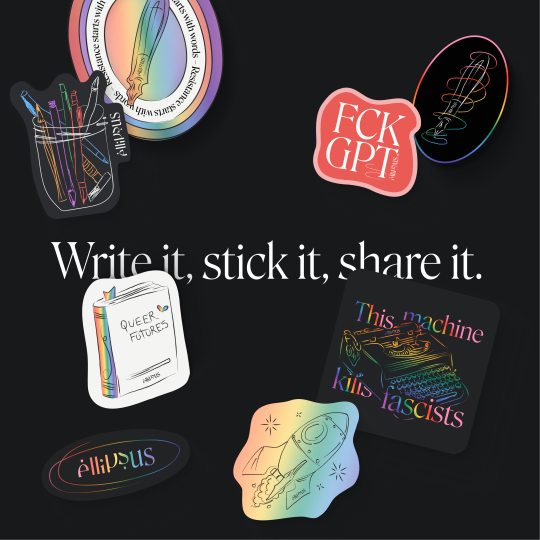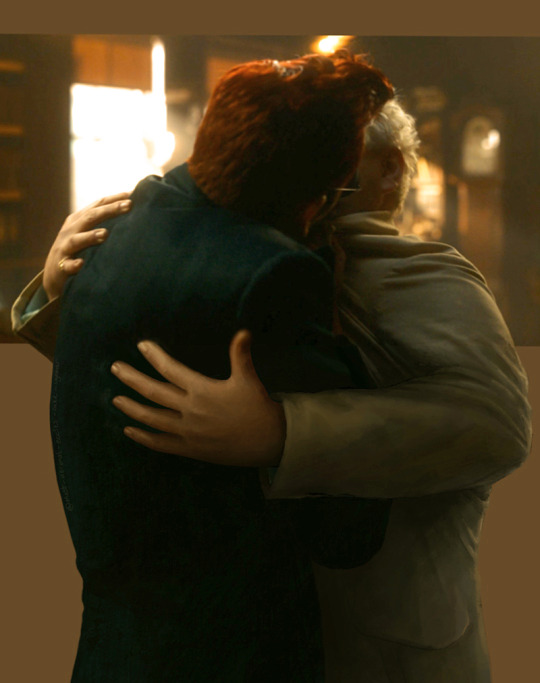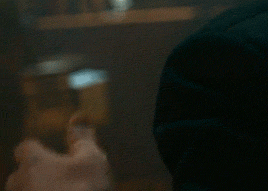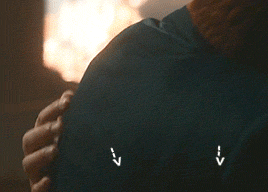#Creativity Tools
Explore tagged Tumblr posts
Text
10 Non-Lethal Injuries to Add Pain to Your Writing
New Part: 10 Lethal Injury Ideas
If you need a simple way to make your characters feel pain, here are some ideas:
1. Sprained Ankle
A common injury that can severely limit mobility. This is useful because your characters will have to experience a mild struggle and adapt their plans to their new lack of mobiliy. Perfect to add tension to a chase scene.
2. Rib Contusion
A painful bruise on the ribs can make breathing difficult, helping you sneak in those ragged wheezes during a fight scene. Could also be used for something sport-related! It's impactful enough to leave a lingering pain but not enough to hinder their overall movement.
3. Concussions
This common brain injury can lead to confusion, dizziness, and mood swings, affecting a character’s judgment heavily. It can also cause mild amnesia.
I enjoy using concussions when you need another character to subtly take over the fight/scene, it's an easy way to switch POVs. You could also use it if you need a 'cute' recovery moment with A and B.
4. Fractured Finger
A broken finger can complicate tasks that require fine motor skills. This would be perfect for characters like artists, writers, etc. Or, a fighter who brushes it off as nothing till they try to throw a punch and are hit with pain.
5. Road Rash
Road rash is an abrasion caused by friction. Aka scraping skin. The raw, painful sting resulting from a fall can be a quick but effective way to add pain to your writing. Tip: it's great if you need a mild injury for a child.
6. Shoulder Dislocation
This injury can be excruciating and often leads to an inability to use one arm, forcing characters to confront their limitations while adding urgency to their situation. Good for torture scenes.
7. Deep Laceration
A deep laceration is a cut that requires stitches. As someone who got stitches as a kid, they really aren't that bad! A 2-3 inch wound (in length) provides just enough pain and blood to add that dramatic flair to your writing while not severely deterring your character.
This is also a great wound to look back on since it often scars. Note: the deeper and wider the cut the worse your character's condition. Don't give them a 5 inch deep gash and call that mild.
8. Burns
Whether from fire, chemicals, or hot surfaces, burns can cause intense suffering and lingering trauma. Like the previous injury, the lasting physical and emotional trauma of a burn is a great wound for characters to look back on.
If you want to explore writing burns, read here.
9. Pulled Muscle
This can create ongoing pain and restrict movement, offering a window to force your character to lean on another. Note: I personally use muscle related injuries when I want to focus more on the pain and sprains to focus on a lack of mobility.
10. Tendonitis
Inflammation of a tendon can cause chronic pain and limit a character's ability to perform tasks they usually take for granted. When exploring tendonitis make sure you research well as this can easily turn into a more severe injury.
This is a quick, brief list of ideas to provide writers inspiration. Since it is a shorter blog, I have not covered the injuries in detail. This is inspiration, not a thorough guide. Happy writing! :)
Looking For More Writing Tips And Tricks?
Check out the rest of Quillology with Haya; a blog dedicated to writing and publishing tips for authors!
Instagram Tiktok
#hayatheauthor#haya's book blog#haya blogs#writing community#quillology with haya#writing tools#writer things#writing advice#writer community#writing techniques#writing prompt#writing stuff#creative writing#ya writing advice#writing tips and tricks#writer tools#writers of tumblr#writer blog#writers block#quillology with haya sameer#writers on tumblr#writerscommunity#writer stuff#author help#author advice#author#writing inspiration#writeblr#novel writing#on writing
64K notes
·
View notes
Text
Napkin AI: 5 Genius Ways to Unleash Your Creative Potential
Did you know that creativity can be sparked in the most unexpected ways? Napkin AI is a new tool that lets you bring your ideas to life. It’s made to help you use all your creative power. Napkin AI has many innovative designs to help you see and improve your ideas. It lets you explore your creative side and make something truly special. Key Takeaways Discover how Napkin AI can unleash your…
#artificial intelligence#Creative Problem Solving#Creativity Tools#Design Thinking#Digital Sketching#Doodling Software#Idea Generation#Innovative Technology#Napkin AI
0 notes
Text
0 notes
Text
Other Words for "Look" + With meanings | List for writers
Many people create lists of synonyms for the word 'said,' but what about the word 'look'? Here are some synonyms that I enjoy using in my writing, along with their meanings for your reference. While all these words relate to 'look,' they each carry distinct meanings and nuances, so I thought it would be helpful to provide meanings for each one.
Gaze - To look steadily and intently, especially in admiration or thought.
Glance - A brief or hurried look.
Peek - A quick and typically secretive look.
Peer - To look with difficulty or concentration.
Scan - To look over quickly but thoroughly.
Observe - To watch carefully and attentively.
Inspect - To look at closely in order to assess condition or quality.
Stare - To look fixedly or vacantly at someone or something.
Glimpse - To see or perceive briefly or partially.
Eye - To look or stare at intently.
Peruse - To read or examine something with great care.
Scrutinize - To examine or inspect closely and thoroughly.
Behold - To see or observe a thing or person, especially a remarkable one.
Witness - To see something happen, typically a significant event.
Spot - To see, notice, or recognize someone or something.
Contemplate - To look thoughtfully for a long time at.
Sight - To suddenly or unexpectedly see something or someone.
Ogle - To stare at in a lecherous manner.
Leer - To look or gaze in an unpleasant, malicious way.
Gawk - To stare openly and stupidly.
Gape - To stare with one's mouth open wide, in amazement.
Squint - To look with eyes partially closed.
Regard - To consider or think of in a specified way.
Admire - To regard with pleasure, wonder, and approval.
Skim - To look through quickly to gain superficial knowledge.
Reconnoiter - To make a military observation of a region.
Flick - To look or move the eyes quickly.
Rake - To look through something rapidly and unsystematically.
Glare - To look angrily or fiercely.
Peep - To look quickly and secretly through an opening.
Focus - To concentrate one's visual effort on.
Discover - To find or realize something not clear before.
Spot-check - To examine something briefly or at random.
Devour - To look over with eager enthusiasm.
Examine - To inspect in detail to determine condition.
Feast one's eyes - To look at something with great enjoyment.
Catch sight of - To suddenly or unexpectedly see.
Clap eyes on - To suddenly see someone or something.
Set eyes on - To look at, especially for the first time.
Take a dekko - Colloquial for taking a look.
Leer at - To look or gaze in a suggestive manner.
Rubberneck - To stare at something in a foolish way.
Make out - To manage to see or read with difficulty.
Lay eyes on - To see or look at.
Pore over - To look at or read something intently.
Ogle at - To look at in a lecherous or predatory way.
Pry - To look or inquire into something in a determined manner.
Dart - To look quickly or furtively.
Drink in - To look at with great enjoyment or fascination.
Bask in - To look at or enjoy something for a period of time.
#on writing#creative writing#writing#writing tips#writers block#how to write#thewriteadviceforwriters#writeblr#writers and poets#writers on tumblr#novel writing#fiction writing#romance writing#writing advice#writing blog#writing characters#writing community#writing help#writing ideas#writing inspiration#writing guide#writing prompts#writing a book#writing resources#writing reference#writing tips and tricks#writers#writing tools#writing life#writing software
20K notes
·
View notes
Text
How can I become a writer?
Write.
But I don't know where to start.
Write.
But I'm worried.
WRITE.
What if nobody likes it?
W R I T E
What if it's not very good?
Write. Write. WRITE. WRITE.
W
R
I
T
E
Write
Write. Write. Write. Write. Write. Write.
Write.
Write
Write
Write
Write
Write
Write
Write
Write
W R I T E
Write write write
Write
Write
#writer things#writer stuff#writing community#creative writing#writeblr#playwright#playwriting#screenplay#short story#writing#writers on tumblr#writers and poets#writing tools#writerscommunity#writing advice#writing asks
9K notes
·
View notes
Text
Is Meta's New AI Art Tool - Revolutionizing Creativity?
Have you ever wondered if artificial intelligence could create art?
This intriguing question leads us to explore Meta's new AI art generator, a tool that promises to revolutionize our understanding of creativity. As technology advances rapidly, this innovative platform is making waves in the digital art world, captivating both artists and tech enthusiasts alike.
The process of using Meta's AI art generator is user-friendly and accessible to everyone. By simply inputting preferences like color schemes and themes, We can witness how quickly it generates stunning artwork. While traditional methods have their charm, AI-generated creations offer fresh perspectives on artistry.
Join us as we delve into the potential impact of this groundbreaking tool!

#AIArt #MetaArtGenerator
Level up you art and your creativity with some of the leading Generative AI Platforms or with Meta AI.

#AI art generator#Meta AI#digital art#creativity tools#art technology#AI creativity#art revolution#digital content creation#artistic innovation#art automation#AI in art#art accessibility#creative process#art challenges#tech enthusiasts#user-friendly design#art styles#color schemes#art experimentation#digital artists#traditional vs AI art#future of creativity#art potential#AI-generated artwork#artistic possibilities#democratizing art#art tools#enhancing creativity#art and technology#AI art trends
0 notes
Text
Ideas to Show Secret Pining
"Why don't you join me?"
"I'll give you a ride, don't worry."
*does something they don't like* "What? I like it."
*immense staring at every chance they get*
*thinking of their crush while listening to songs*
"You said you liked it so I brought it for you."
*finds ways to spend more time with them*
*friendly bullying intensifies*
"I'm looking forward to seeing you there."
"Are you gonna be there?"
"How about we sneak off, just you and me?"
"Why don't I cook for them? What's their favourite dish again?"
*aggressive google searches about how to propose to your crush*
"I'll join those dance lessons, maybe then she'll notice me."
*hopeless around them*
*failed flirting attempts*
*increased compliments*
"My problem is that I like them a little too much for my sanity."
*gets jealous* "So, are you seeing them or something?"
"Are you okay?" // "Completely okay!" (definitely not okay)
*tries to sabotage their crush's date*
*gets into trouble so they can be scolded by their crush*
"I want you to come with me, please?"
-ashlee
#writers on tumblr#writerscommunity#writing#books#writer#write#writingtips#creative writing#tips and tricks#fanfic writing#writings#writing ideas#writing prompts#on writing#writeblr#writing life#writing tips#writers#prompts#writing inspiration#writing prompt#story prompts#story ideas#writing advice#writing community#writing tools#writingideas#dialogues#drabbles#dialogue ideas
11K notes
·
View notes
Text
Questions to Ask Yourself About Your Character
What is their relationship with their parents?
What is their favorite meal?
How do they identify?
What's their style?
Are they proud of themselves?
Are they patient or impatient?
Do they have siblings, and what's their relationship with them?
What are their standards?
Have they ever been in love?
When was the last time they felt loved?
Have they gotten their heart broken?
Do they know who they are?
What are their preferences?
What do they want?
What are their goals?
What would they do if they failed?
What would they save in a fire?
What's one childhood item they still love?
#writing#writing tips#tips#writing inspiration#writing prompt#writing community#writing advice#creative writing#writeblr#writerscommunity#writers on tumblr#writers#how to write#writing a book#writing tips and tricks#writing resources#writing tools
2K notes
·
View notes
Text

Know a notebook, laptop, or bathroom stall that could use a little zhuzh? (It’s not vandalism if it’s ✨aesthetic✨)
We’ve got just the thing...
... Yep, we’re officially jumping on the merch gambit.
With a whole slew of stickers to choose from, you can support your favorite local writing tool, stay delightfully AI-free, and let the world know you write like a human. And for Pride, 50% of all proceeds will go to The Trevor Project, Trans Lifeline, and The ACLU this June.
Check em out here! - the Ellipsus Team xo
#writeblr#writing#writers on tumblr#fiction#fanfic#fanfiction#collaborative writing#anti ai#creative writing#pride#pride month#lgbt pride#trans pride#queer pride#writing tools#ellipsus
2K notes
·
View notes
Text
Character Building
Some things to think about when building/describing a character:

Physical traits
Hair: color and length. Maybe it's natural, maybe it's dyed
Build: height, weight, muscle
Face: maybe they have a longer nose or forehead. Think about specific features like freckles, gapped teeth, jaw shape, acne scars, lip shape
Eyes: eye color, shape,
Backstory
Where is your character from?
Do they have family? How has that affected their personality?
What are their goals?
What are their likes/dislikes?
Strengths and weaknesses
Age
Personality
Voice: is their voice deep? Lilted? Strained?
How do they react to stressful situations?
What do they wear?
Are they kind? Meaner? Restrained?
How do they move? If they're older maybe they're a bit slower. Maybe your character is clumsy or move awkwardly
Body language/face: is your character normally more serious? Do they have RBF? Maybe they smile more or their face is more relaxed at rest. Maybe they leave their hands on their hips a lot, or prefer them crossed or in their pockets.
How are they perceived by others? How do they view the people around them?
Should I dive deeper on some of these?
#creative writing#my writing#short story#snippet#story#writers on tumblr#writers community#writing#writeblr#writers and poets#prompt list#prose#writing prompt#words#character design#aspiring writer#aspiring author#writerscommunity#character description#writing tips#writing things#writing tool#writing advice#writing and poetry
3K notes
·
View notes
Text
100 Dialogue Tags You Can Use Instead of “Said”
For the writers struggling to rid themselves of the classic ‘said’. Some are repeated in different categories since they fit multiple ones (but those are counted once so it adds up to 100 new words).
1. Neutral Tags
Straightforward and unobtrusive dialogue tags:
Added, Replied, Stated, Remarked, Responded, Observed, Acknowledged, Commented, Noted, Voiced, Expressed, Shared, Answered, Mentioned, Declared.
2. Questioning Tags
Curious, interrogative dialogue tags:
Asked, Queried, Wondered, Probed, Inquired, Requested, Pondered, Demanded, Challenged, Interjected, Investigated, Countered, Snapped, Pleaded, Insisted.
3. Emotive Tags
Emotional dialogue tags:
Exclaimed, Shouted, Sobbed, Whispered, Cried, Hissed, Gasped, Laughed, Screamed, Stammered, Wailed, Murmured, Snarled, Choked, Barked.
4. Descriptive Tags
Insightful, tonal dialogue tags:
Muttered, Mumbled, Yelled, Uttered, Roared, Bellowed, Drawled, Spoke, Shrieked, Boomed, Snapped, Groaned, Rasped, Purred, Croaked.
5. Action-Oriented Tags
Movement-based dialogue tags:
Announced, Admitted, Interrupted, Joked, Suggested, Offered, Explained, Repeated, Advised, Warned, Agreed, Confirmed, Ordered, Reassured, Stated.
6. Conflict Tags
Argumentative, defiant dialogue tags:
Argued, Snapped, Retorted, Rebuked, Disputed, Objected, Contested, Barked, Protested, Countered, Growled, Scoffed, Sneered, Challenged, Huffed.
7. Agreement Tags
Understanding, compliant dialogue tags:
Agreed, Assented, Nodded, Confirmed, Replied, Conceded, Acknowledged, Accepted, Affirmed, Yielded, Supported, Echoed, Consented, Promised, Concurred.
8. Disagreement Tags
Resistant, defiant dialogue tags:
Denied, Disagreed, Refused, Argued, Contradicted, Insisted, Protested, Objected, Rejected, Declined, Countered, Challenged, Snubbed, Dismissed, Rebuked.
9. Confused Tags
Hesitant, uncertain dialogue tags:
Stammered, Hesitated, Fumbled, Babbled, Mumbled, Faltered, Stumbled, Wondered, Pondered, Stuttered, Blurted, Doubted, Confessed, Vacillated.
10. Surprise Tags
Shock-inducing dialogue tags:
Gasped, Stunned, Exclaimed, Blurted, Wondered, Staggered, Marvelled, Breathed, Recoiled, Jumped, Yelped, Shrieked, Stammered.
Note: everyone is entitled to their own opinion. No I am NOT telling people to abandon said and use these. Yes I understand that said is often good enough, but sometimes you WANT to draw attention to how the character is speaking. If you think adding an action/movement to your dialogue is 'good enough' hate to break it to you but that ruins immersion much more than a casual 'mumbled'. And for the last time: this is just a resource list, CALM DOWN. Hope that covers all the annoyingly redundant replies :)
Looking For More Writing Tips And Tricks?
Check out the rest of Quillology with Haya; a blog dedicated to writing and publishing tips for authors!
Instagram Tiktok
#hayatheauthor#haya's book blog#haya blogs#writing community#quillology with haya#writing tools#writer things#writing advice#writer community#writing techniques#writing prompt#writing stuff#creative writing#ya writing advice#writing tips and tricks#writer tools#writers of tumblr#writer blog#writers block#quillology with haya sameer#writers on tumblr#writerscommunity#writer stuff#author help#author advice#author#writing inspiration#writeblr#novel writing#on writing
34K notes
·
View notes
Text
Poison list
While it's important to approach writing with creativity and imagination, it's crucial to prioritize responsible and ethical storytelling. That being said, if you're looking for information on poisons for the purpose of writing fiction, it's essential to handle the subject matter with care and accuracy. Here is a list of some common poisons that you can use in your stories:
Hemlock: Hemlock is a highly poisonous plant that has been used as a poison in various works of literature. It can cause paralysis and respiratory failure.
Arsenic: Arsenic is a toxic element that has been historically used as a poison. It can be lethal in high doses and can cause symptoms such as vomiting, abdominal pain, and organ failure.
Cyanide: Cyanide is a fast-acting poison that affects the body's ability to use oxygen. It can cause rapid loss of consciousness and cardiac arrest.
Nightshade: Nightshade plants, such as Belladonna or Deadly Nightshade, contain toxic compounds that can cause hallucinations, respiratory distress, blurred vision, dizziness, an increased heart rate, and even death when ingested.
Ricin: Ricin is a potent poison derived from the castor bean plant. It can cause organ failure and has been used as a plot device in various fictional works.
Strychnine: Strychnine is a highly toxic alkaloid that affects the nervous system, leading to muscle spasms, convulsions, and respiratory failure.
Snake Venom: Various snake venoms can be used in fiction as deadly poisons. Different snake species have different types of venom, each with its own effects on the body.
Digitalis: Digitalis, derived from the foxglove plant, contains cardiac glycosides. It has been historically used to treat heart conditions, but in high doses, it can be toxic. Overdosing on digitalis can cause irregular heart rhythms, nausea, vomiting, and visual disturbances.
Lead: Lead poisoning, often resulting from the ingestion or inhalation of lead-based substances, has been a concern throughout history. Lead is a heavy metal that can affect the nervous system, leading to symptoms such as abdominal pain, cognitive impairment, anemia, and developmental issues, particularly in children.
Mercury: Mercury is a toxic heavy metal that has been used in various forms throughout history. Ingesting or inhaling mercury vapors can lead to mercury poisoning, causing symptoms like neurological impairment, kidney damage, respiratory issues, and gastrointestinal problems.
Aconite: Also known as Wolfsbane or Monkshood, aconite is a highly toxic plant. Its roots and leaves contain aconitine alkaloids, which can affect the heart and nervous system. Ingesting aconite can lead to symptoms like numbness, tingling, paralysis, cardiac arrhythmias, and respiratory failure.
Thallium: Thallium is a toxic heavy metal that can cause severe poisoning. It has been used as a poison due to its tastelessness and ability to mimic other substances. Thallium poisoning can lead to symptoms like hair loss, neurological issues, gastrointestinal disturbances, and damage to the kidneys and liver.
When incorporating poisons into your writing, it is essential to research and accurately portray the effects and symptoms associated with them. Additionally, be mindful of the potential impact your writing may have on readers and the importance of providing appropriate context and warnings if necessary.
If you want to read more posts about writing, please click here and give me a follow!

#creative writing#writing#writeblr#writerscommunity#writer things#writers#writersociety#on writing#writers on tumblr#writblr#writings#writer#words#write#writers and poets#writing stuff#writing tools#writing prompt#writing community#writing inspiration#writing tips#writing advice#poison type#literature#belladonna
24K notes
·
View notes
Note
advice for a character who grips control like a lifeline. who wants to be in charge of every little thing because whenever they're not in control of something something bad could happen. has happened. they can't let a single variable be wild or in someone else's hands
How to Write a Controlling Character
Backstory Rooted in Trauma or Guilt
This character likely has a history that has ingrained the belief that they must be in control or face devastating consequences. Perhaps they once trusted someone else with something crucial—a promise, a responsibility, or a life-altering choice—and that trust was broken in a way that had lasting repercussions. For example, maybe they lost someone because they weren’t “careful enough,” or they experienced a betrayal when they trusted another person’s plan.
They might frequently flash back to this moment, possibly catching themselves thinking, If only I’d been the one in control, this wouldn’t have happened. This memory fuels their need to keep a tight grip on everything, especially if they’re in high-stakes situations.
Rigid Daily Routines and Habits
This character’s day is probably packed with small rituals and routines that give them a sense of security. From double-checking door locks to setting multiple alarms, they rely on routines to give themselves a sense of order. In fact, they might be nearly ritualistic about small actions—checking emails three times before sending, never leaving a task halfway finished, or meticulously arranging their workspace.
Even something as simple as making coffee can become a precise process. If someone moves one of their tools or a file from their desk, they may feel a spike of frustration or even anxiety, seeing it as a disruption to their personal “system.” They could feel that control in their daily life is the only thing keeping chaos at bay.
Intensely Observant of Details and Mistakes
They are hyperaware of mistakes or inefficiencies in others, mentally cataloging things like a coworker’s slight lateness or a friend’s disorganization. They may feel a sense of superiority (or frustration) over people who don’t “have it together” and take it upon themselves to organize or “fix” things for others.
In conversation, they might cut people off or “correct” them even over small points, often justifying this to themselves as necessary. For instance, if someone shares a plan that seems half-formed, this character could immediately dive in, pointing out potential problems or filling in details.
Controlling Relationships and Social Situations
This character struggles in relationships where they aren’t the dominant or organizing force. They might instinctively take over when making plans with friends, micromanaging even casual hangouts to make sure everything goes “right.” For example, they might pick the restaurant, plan the travel route, and check weather forecasts—assuming that if they don’t, no one else will think of these things.
When someone resists their attempts at control, they can respond defensively, often turning cold or resentful, unable to understand why anyone wouldn’t want them to manage the situation. Statements like, “Fine, but don’t blame me if this doesn’t go well,” are frequent in their interactions.
Extreme Anxiety or Panic When Control Is Taken Away
When things go beyond their reach, this character might experience panic, as if they’re suddenly powerless. For instance, if an unexpected roadblock prevents them from handling a task (like a canceled flight they needed to board, or a plan that falls apart), they might spend hours trying to regain control, calling every contact or frantically exploring alternatives.
Their reaction may feel extreme to others. Even minor setbacks—such as a colleague taking initiative on a project or a friend planning something without consulting them—can trigger a disproportionate response, like clenching their fists, pacing, or silently stewing as they feel the situation “slipping.”
Inability to Accept Help or Collaboration
Their controlling nature makes it hard for them to collaborate, as they believe their methods are the only ones that work. For them, accepting help feels like an admission of weakness or failure, so they rarely delegate or ask for assistance. If they do reluctantly accept help, they are constantly supervising or “suggesting” things, making it feel more like they’re still in charge.
In a team setting, they might take on all the major tasks, either out of distrust in others’ abilities or a feeling that no one will match their standards. Their motto could be something like, “If you want something done right, do it yourself,” even if that means working late or burning out.
Reluctance to Show Vulnerability or Need
Since vulnerability and control rarely coexist for them, they avoid showing weakness at all costs, preferring to mask stress or struggles as “just part of the job.” If they do become overwhelmed, they’re more likely to shut people out, saying, “I’ve got it handled,” even if it’s far from true.
When people push them to let go or share the load, they might lash out, accusing others of “just not understanding.” They often see their intense responsibility as a form of sacrifice, justifying their behavior with, “If I don’t handle this, who will?”
#creative writing#writeblr#ask box prompts#how to write a controlling character#how to write#writing tips#writing advice#writing resources#writing help#writing reference#writing prompts#how to#writing tools#writing techniques#writing stuff
2K notes
·
View notes
Text
How to Start Writing Again When the Spark Fades
Sometimes the well of creativity runs dry, leaving you staring at a blank page with nothing but frustration. But trust that the art of writing is as much about the journey as it is about the destination. Here are some ideas to help you reconnect with your writing practice when you feel like your passion has dimmed.
Redefine Your Environment Consider taking a deliberate step outside your usual writing space. The environment in which you work can drastically affect your mindset and creative flow. Even if it’s setting up in a different corner of your home, finding refuge in a local café, or enjoying the subtle distractions of a park bench, a change in scenery often signals a mental reset. This isn’t about permanent relocation, just a simple shift can break the monotony and stir new ideas that have been hiding in plain sight.
Embrace Imperfection The pressure to produce perfect prose can be paralyzing. Give yourself permission to create something imperfect yet honest. Think of every sentence you write as a rough sketch, a necessary experiment in understanding your own voice. When you allow yourself the space to write without the weight of perfection, you invite experimentation and genuine self-expression. That freedom lies at the heart of rediscovering why you fell in love with writing in the first place.
Set Incremental Goals for Continuous Momentum When the idea of diving into a full chapter feels overwhelming, scale back to manageable, bite-sized projects that feel achievable. Instead of demanding a polished page, challenge yourself to write a paragraph or even a single sentence each day. These micro-goals build a foundation of small successes, gradually restoring confidence and momentum. Over time, these consistent efforts enrich your creative reservoir, proving that every little step is indeed a victory.
Engage Deeply in the Process of Freewriting Allow yourself to spill thoughts onto the page without judgment or expectation. Freewriting is an exercise in vulnerability and self-exploration, offering you a space to unburden tangled ideas and unexpected insights. In these unfiltered moments, you might stumble upon a germ of an idea or a rediscovered passion that rekindles your creative fire. Embracing this unstructured approach can transform an intimidating blank page into an open canvas of potential you haven't tapped back into.
Rekindle Old Inspirations There is power in revisiting the work and moments that first ignited your creative spirit. Even if it’s rereading an old journal entry, rediscovering a favorite piece of literature, or reflecting on the stories that once moved you, reconnecting with your past inspirations can shed new light on your present creative journey. This reflective practice not only reminds you of your original passion but may also reveal new directions for your current writing endeavors.
Create a Consistent, Loving Writing Routine Creating a structured yet gentle routine can help reestablish your relationship with writing. Treat your writing time as a vital appointment, a moment carved out just for you. Even if inspiration seems scarce, the simple act of sitting down, opening your notebook, and letting words flow without self-censorship can be incredibly healing. Over time, this practice transforms writing from an obligation into a ritual of self-discovery and mindfulness.
Connect with a Community That Understands Engaging with fellow writers can remind you that you’re not alone in this struggle. The shared experience of creative highs and lows can be profoundly comforting. Join writing groups, participate in online forums, or simply reach out to someone whose work inspires you. These interactions foster a sense of belonging and accountability, encouraging you to keep writing even when the path isn’t clear. In the gentle exchange of ideas and feedback, there is often a spark that reignites your dedication.
Every writer’s journey is unique, filled with ebbs and flows. If you’re feeling disconnected, know that these moments are integral to growth. Embrace each phase as an opportunity to rediscover writing on its own terms, and allow your passion to guide you back into the words you love. If you need any advice from me, never be afraid to send me an ask.
Until next time, Rin T.
#on writing#creative writing#writing#writing tips#writers block#how to write#thewriteadviceforwriters#writeblr#writers and poets#writers on tumblr#novel writing#fiction writing#romance writing#writing advice#writing blog#writing characters#writing community#writing help#writing ideas#writing inspiration#writing guide#writing prompts#writing a book#writing resources#writing reference#writing tips and tricks#writers#writing tools#writing life#writing software
4K notes
·
View notes
Text


The products of trying to recreate what was going on outside the frame during the kiss. (for ENTIRELY SCIENTIFIC purposes)
@actual-changeling altered my whole outlook on life with this post about Aziraphale's left hand (I'd only been looking at his right hand) and I couldn't stop thinking about it, so I painted the rest of the fucking owl (and his bf).


so normal about this
#good omens fanart#ineffable fanart#crOWLey#aziraphale#good omens 2#good omens#lord gaiman stokes the fires of our creativity#bless also michael sheen and david tennant#i think I’ve earned my eye dropper tool merit badge#now I can go back to sobbing and writing the aziraphale meta#good omens s2e6#aziracrow#crowley x aziraphale#good omens 2 spoilers#go2 spoilers#good omens spoilers
19K notes
·
View notes